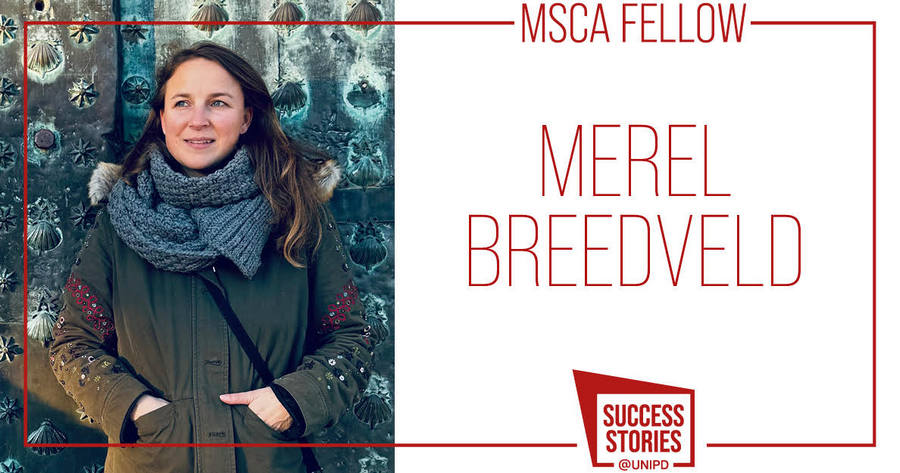
MSCA Fellow: Merel Breedveld
Working in various groups across different countries has been an enriching experience for me. It has allowed me to come in close contact with diverse cultures and to work on different research topics. This has allowed me to gain new perspectives and a broader background knowledge.

Merel C. Breedveld is from the Netherlands, she obtained her MSc in Animal Biology from the University of Utrecht and after obtaining her PhD in Spain she moved to Germany for a postdoc position at the University of Potsdam. Her research covers the fields of behavioural ecology, reproductive biology and evolutionary biology, and her main interests include reproductive strategies and sexual selection. She is especially interested in whether and how animals adjust reproductive strategies in response to changes in their external environment, in the consequences of environmental change on reproductive success, and in whether behavioural adjustments have the potential to mediate negative consequences.
She has been awarded a MSCA Individual Fellowship (MSCA-IF) in 2020.
Can you shortly explain your research project and which are the objectives of your research?
Under ongoing climate change, heatwaves are becoming increasingly common and intense. While evidence is abundant that heatwaves can be deadly for animals, it is less clear what their sublethal consequences are, for instance, on behaviour and reproduction (essential for animal populations to persist!). In my research project "HeatWaveSS" at the department of Biology, we study these sublethal effects of heatwaves, using a small freshwater fish species (Poecilia reticulata) as a model organism.
You studied and worked as postdoc in different Universities, in the Netherlands, Spain, Germany. What did you learn in those different environments? Are you able to integrate the different approaches to research, if any?
Working in various groups across different countries has been an enriching experience for me. It has allowed me to come in close contact with diverse cultures, and to work on different research topics and animal groups (birds, reptiles, mammals, fish). This has provided me with a broad background knowledge and allowed me to gain alternative perspectives, something I make use of everyday in my research.
Why did you decide to apply with the University of Padua?
With my first postdoc (in Germany) coming to an end I was ready for a new challenge: applying for an MSCA fellowship. After finding a perfect matching supervisor – Clelia Gasparini – and hearing good things about the University of Padua, I decided to apply with them. They have been a very supportive host institution!
How did you meet your supervisor, Clelia Gasparini? How did you come up together with the idea for your MSCA IF project? Did she support you in writing the project? What is her role in your project?
Within my research focus on how reproduction and sexual selection are influenced by the external environment, I had always wanted to work with the guppy (Poecilia reticulata), a great model species for studying reproductive traits. Thus, when I discovered Clelia – an expert in guppy reproduction – I contacted her directly about my MSCA-IF application. I have been very lucky to have her as a supervisor, she has been a great support in developing and writing the proposal, as well as in carrying out the project.
What are your plans for the future, after you finish the MSCA-IF fellowship?
Making solid plans for the future can be difficult in a research career, since securing a fixed position in academia is not a given. I try to focus on enjoying my current project, while keeping my eyes open for potential future positions and fellowships. For now, however, I don't know what the future will bring or where it will be.
What would you suggest to a researcher that is thinking about applying for a MSCA-PF?
Take your time – it is a time-consuming application – and try not to be discouraged if your proposal is rejected. The application process is in itself a learning experience, and you may win the fellowship in the next year (it took me two rounds)!
International Research Office
via Martiri della libertà 8, 35137 Padova, Italy
tel. +39 049.827 1947 / 1948 / 1945
fax +39 049.827 1911
international.research@unipd.it


